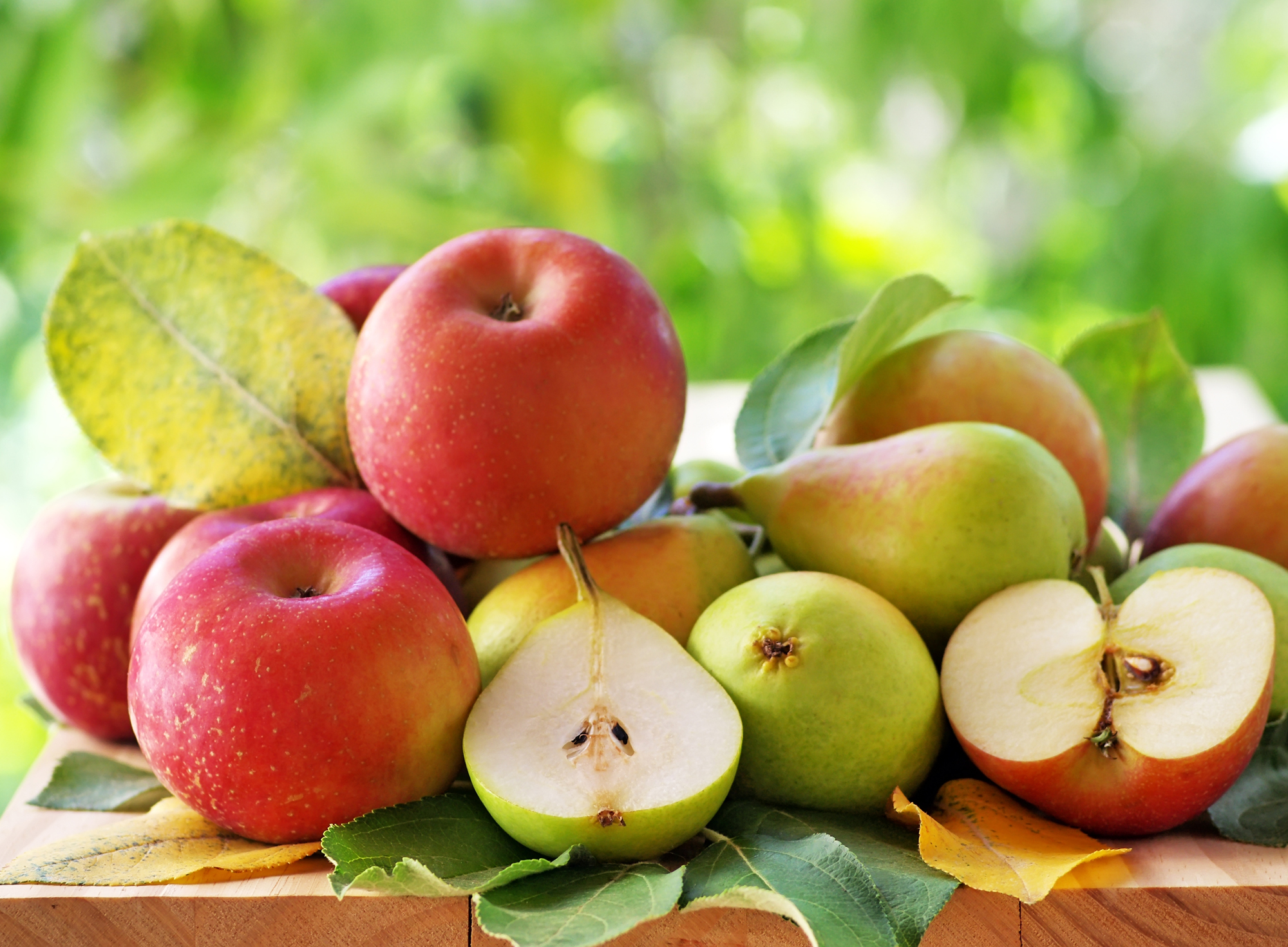Get Easy Health Digest™ in your inbox and don’t miss a thing when you subscribe today. Plus, get the free bonus report, Mother Nature’s Tips, Tricks and Remedies for Cholesterol, Blood Pressure & Blood Sugar as my way of saying welcome to the community!
What apples and pears do to your stroke risk

You know the old saying about an apple a day, and how it keeps us from getting sick…
And, you’ve probably heard that dark green and deeply colored fruits and vegetables provide you with far more nutrition than pale or white ones.
Well, research has managed to confirm the first adage while turning the second piece of wisdom completely on its head…
It seems that those white-fleshed fruits and veggies have something important to offer that no one knew about, until now — and it’s a pretty big deal to say the least.
White-fleshed fruits win at preventing stroke
According to the Centers for Disease Control, almost 800,000 people in the United States each year suffer a stroke, making it the fifth leading cause of death nationwide.
A lot of science has gone into understanding how good nutrition can help prevent stroke. For the first time, though, a study has examined two specific things in conjunction: the color of fruits and vegetables consumed, and the incidence of stroke.
Dutch researchers enlisted 20,069 adults between ages 20 and 65, and gathered self-reported information over a ten-year period on the colors of fruits and vegetables they ate.
For purposes of the study, fruits and vegetables were classified as green (including dark, leafy vegetables), orange/yellow (mostly citrus fruits), red/purple, or white. Fifty-five percent of the white group was made of apples and pears.
None of the study participants had previous cardiovascular disease, but during the ten-year period, 233 strokes were documented. What was striking, though, was that the risk of stroke was 52 percent lower for people who ate a lot of white fruits and vegetables.
What’s more, each increase of 25 grams per day in white fruit and vegetable consumption was associated with a nine percent lower risk of stroke!
Quercetin: funny name, powerful prevention
So where does the protective power of those white-fleshed fruits come from? The answer lies in an antioxidant called quercetin.
Quercetin is known to support cellular health and function. It inhibits the production of cytokines, proteins our body produces that trigger inflammation, which in turn plays a part in blood clotting and clogged arteries.
Quercetin is found in a range of fruits and vegetables, but apples and pears top the list. An average apple of 150 grams can contain up to 10 mg. of quercetin.
So, science has proven the wisdom of an age-old remedy: An apple a day can, indeed, keep the doctor away… especially when it comes to stroke risk. But…
Quercetin fights more than just stroke
The inflammation abomination is at the root of most diseases, including cancer, heart disease, cognitive decline and autoimmune disorders. Quercetin supplements are used to treat the inflammation behind many conditions, including hardened arteries, high cholesterol and heart disease. It is also used to treat:
- Gout (a painful sign your stroke risk is growing)
- Asthma
- Viral infections
- Chronic fatigue syndrome
- Cataracts
Other sources of quercetin
Try adding these other foods to your diet for some of the health benefits of quercetin:
- Bananas
- Onions
- Capers
- Yellow peppers
- Fresh dill
- Fresh tarragon
- Buckwheat
Editor’s note: What do you really know about stroke? The truth is, only 10% of stroke survivors recover almost completely, and all doctors can offer is what to do after a stroke occurs. That’s unacceptable considering 80% of strokes are preventable! Click here to discover how to escape The Stroke Syndrome: 5 Signs it’s Stalking You — Plus the Hidden Causes and Preventive Measures You’ve Never Heard About!
Sources:
- Colors of Fruit and Vegetables and 10-Year Incidence of Stroke — Stroke
- Preventing Stroke: Healthy Living — Centers for Disease Control and Prevention
- An apple or pear a day may keep strokes away — American Heart Association
- Quercetin — WebMD













